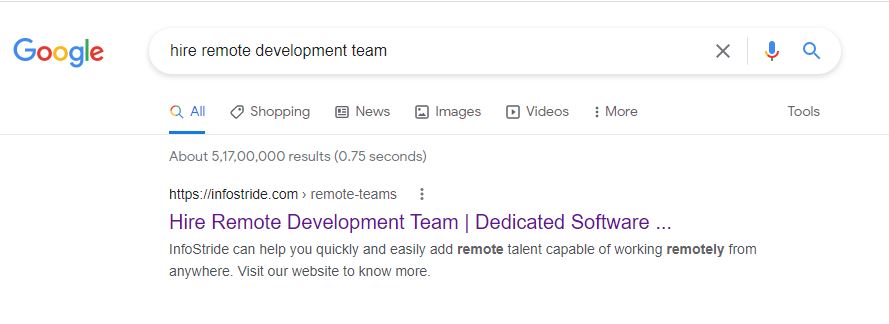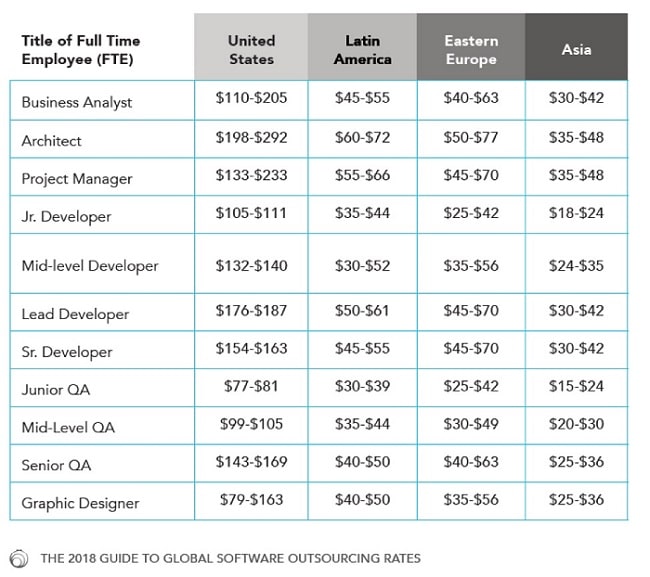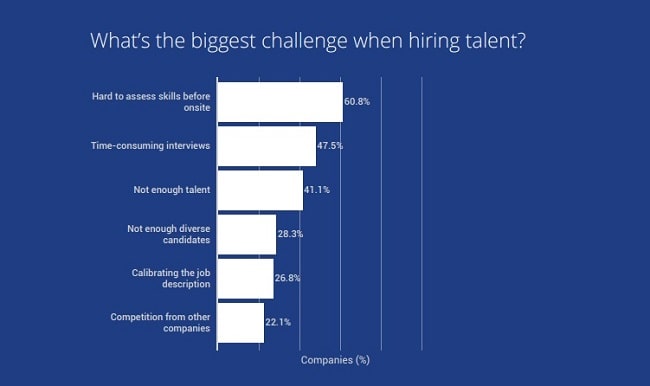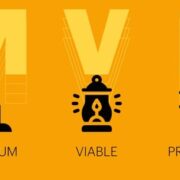Hiring remote developers has become a go-to practice among companies for their development projects. But if it’s your first time, there are so many things that can go wrong – resulting in costing you and your company money and time.
From creating a job post, screening & evaluating candidates to onboarding, it’s a must to go through each stage in an efficient manner to make remote hiring successful.
As we understand hiring remote developers is not without challenges, we’re here with a comprehensive post to help make the process easy for you.
Whatever your concern – why to hire remote developers, how to hire remote developers, where to find remote developers, how to create a job description that attracts qualified talent, what is the cost to hire remote developers – this post has got you covered.
Ready? Let’s start with the benefits of hiring remote developers in 2021:
Why Hire Remote Developers?
From global talent pool access to reduce employee turnover rate and business operating costs, the benefits of hiring remote developers are many. And even many studies on remote development confirm that.
Have a look below and see yourself:
-
Access to Global Talent Pool
According to a survey conducted by HackerRank, 41% of employers said talent shortage is the biggest challenge they face while finding and hiring talent.
In industry after industry across the globe, the demand for skilled developers is escalating, making finding talented developers with a specific tech stack in local areas challenging at times.
Remote work empowers companies across various industries to transcend geographical boundaries to gain access to more talent and hire the world’s top talent.
-
Reduce Operating Expenses
Hiring remote developers proves to be cost-effective for companies as it eliminates the need to rent an office space and bear other related expenses such as electricity bills and office supplies.
As per Global Workplace Analytics, if a company decides to work remotely half the time, then the decision can help them save up to approximately $11,000 per employee per year.
-
Enhanced Overall Productivity
Many companies that plan to hire remote development teams think twice as they feel it might affect their productivity. But the reality is different.
According to a survey conducted by Indeed, 72% of companies that implement remote-work policies say the initiative resulted in a more productive workforce.
-
Enhanced Overall Flexibility
Remote work provides the biggest benefit that today’s developers crave and it is flexibility to manage their day in a way they can work the most effectively.
That way developers are able to go beyond their traditional 9 to 5 working schedule and make adjustments in timings as per the client’s time zone.
-
Higher Employee Retention
Implementing remote work policies can significantly reduce employee turnover and boost employee loyalty. Employer turnover is quite expensive.
If one of your high performers leaves the company, be ready to spend significant money, time, effort, and resources to source, hire and train a replacement.
So what can you do to increase employee retention rates? One proven way is empowering your employees to choose how they work.
In fact, as per the same survey conducted by Indeed, 52% of companies that implement remote work culture that it has reduced employee turnover.
How to Hire Remote Developers?
To make hiring a remote developer successful, you’ll have to go through several stages in a sequential manner. Every stage requires a considerable amount of time and effort to move on to the next stage. Without further ado, let’s have a look at the process of hiring remote developers:
1. Create a Job Description
The first step for hiring remote developers is creating a compelling job description that attracts the best developers for the remote development role at your company. To extend a helping hand, below are important things that an effective job description include:
-
Job Title
When it comes to writing a job title, there is no need to use fluffy words such as “ninja”, “Hacker” or “rockstar”. Your job title should be crystal clear. It should communicate the role clearly to the potential candidates. Instead of adding fluffy words, go for more professional titles such as “Android Developer”, “Flutter Developer” or “Laravel Developer”.
-
Overview of the Company
The job description should entail a quick overview of your company’s mission, core values, and culture. You can commence with what you do, the services and products you provide, and the types of clients you serve.
Mention your company’s values and culture as this will help potential job seekers what you expect from them and whether they will be able to adapt to the culture you follow.
-
Overview of Role
It is time to dig deeper into the role itself. Give a brief description of the open remote role to the potential candidate, the team they would be working with on a daily basis, whom they would be reporting to, and how (communication tools you use within the organization).
Also, remote working conditions such as a particular working time zone, any trips to specific locations, and salary range.
-
Job Responsibilities
Make use of bullet points to explain the job responsibilities concisely – day-to-day duties of what the ideal candidate will do. This will help potential candidates comprehend their own capability whether they would be an ideal fit for the role or not.
-
Job Requirements
This part should also be brief and in a bulleted list and it includes everything from technical skill sets, soft skills, relevant experience required, qualifications to tools required to be able to perform successfully while working remotely.
-
Compensation and Benefits
This is part to convince potential candidates why they should be part of your company. You must mention information regarding the compensation, benefits, and perks your company will provide to the candidate who gets this open role.
2. Start Posting & Searching
After creating a job description, the next step is to post it for job seekers to apply. Today, there are many platforms where you can post your job description and attract potential candidates.
- Job boards such as Indeed
- Social media platforms like Linkedin
- Forum websites like Reddit
- Consult IT outsourcing agencies (you can use the Clutch platform to find the IT companies with dedicated remote developers for hire)
We’ll talk more about all these ways to find remote developers in the next section.
3. Scan Resumes/CV & Shortlist Candidates
Once you start receiving applications from different sources, it’s time to start filtering to find the potential candidates for the job role you’re offering.
Scan all the resumes/CVs manually or Applicant Tracking System (ATS) and shortlist candidates based on technical skills, soft skills, experience and other factors crucial to you.
4. Conduct Virtual Interviews
After picking the potential candidates who meet your criteria for your project, it’s time to interview candidates virtually. Make sure to evaluate candidates thoroughly to find the ideal fit – technically as well as culturally.
5. Technical Assessment
For better assurance, it’s best to conduct a technical coding round for the selected candidates via a virtual interview round. Collaborate with a subject matter expert to prepare the time-based coding challenge. This will help you evaluate their practical technical knowledge, time management skills and much more.
6. Getting Started
Once you’ve selected the candidates to hire, it’s time to draft a contract for the remote developers which will entail all the terms and conditions including IP rights, chargers, and more. After that, you can onboard the developers to start working on your development projects.
Where to Find Remote Developers Online?
Now that you have an idea about the process to hire remote developers, let’s now discuss where to find them (as promised in the above section).
There are different ways you can adopt to hire remote developers. Depending on the type of project, you can use one or more ways – for example, remote job boards or forum websites – to find talent. Let’s have a look at each way in detail to help you decide which ones to leverage.
1. Outsourcing Agencies
IT Outsourcing agencies will find and hire remote developers or teams for you. If you decide to partner with an IT outsourcing agency, you approach them with the project requirements and they will deploy a remote development team of the right size for your project.
Outsourcing agencies manage all the administrative and legal concerns of hiring remote developers including but not limited to recruitment, infrastructure, payroll, compliance, benefits, and others.
Another benefit of hiring remote developers from IT companies is you can fill every tech skill gap. Whether you want to hire Kotlin app developers, Laravel developers, PHP developers or Flutter app developers, they can provide developers with the expertise you’re looking for.
Learn More:
How Much Does It Cost to Hire a Flutter Developer?
How Much Does It Cost to Hire a Laravel Developer?
The Process to Hire a Remote Development Team Through an IT OutSourcing Company
IT outsourcing companies have a simple process to help companies hire remote developers or teams. Have a look:
1. Tell your needs & requirements
Once you’ve chosen the IT company, share your project requirements, job description and desired team structure. The IT outsourcing company will then shortlist the best candidates that match your requirement from their in-house development teams.
2. Interview remote developers
Once you get a list of selected candidates, you can review their resumes and evaluate them. The IT outsourcing company facilitates as many interview rounds as required to help you pick the best developers for your project.
3. Hire and start working
The IT outsourcing company starts the onboarding process once you decide to hire developers while taking care of payroll, compliance, taxes, employee benefits and other administrative tasks.
4. Ongoing support
The IT outsourcing company generally provides a dedicated client manager or project manager who always stays in touch with you and your remote time to address any issues. You can scale up or down the resources as required to fill your current requirement.
5. Job Boards
You can take advantage of job boards such as Indeed, LinkedIn, Monster, FlexJobs, We Work Remotely to find remote developers. But make sure to use the global job boards that allow you to specify “remote position” to post your job listing or requirement.
6. Freelance Platforms
There are numerous well-known freelance marketplace platforms such as UpWork to find and hire freelancers for your project typically on a short-term basis.
Thus, if you’re interested in hiring full-time remote developers or seeking long-term cooperation, finding potential candidates via freelance platforms is not an efficient way to do so. In such scenarios, the better option is to contact outsourcing agencies for your needs.
6. Referrals
The best way to find and hire quality talent is through referrals. You can ask someone in your professional or personal network to recommend a potential candidate for your project. They’re likely to recommend the most talented people in order to maintain their reputation.
7. Forum Websites
You can also find and hire developers via forum websites like Reddit. You may or may not know that there are subreddits exclusively for hiring developers. Have a look below:
r/INAT (I Need a Team)
Seeking a Quick Way to Find Remote Developers? Do a Quick Google Search!!

All you need to do is just type your query (remote developers for hire) in the Google search bar and Google will fetch the best results (best outsourcing companies or job platforms to hire remote developers) for your query.
You can even search for your specific requirement such as if you’re interested in hiring a full-scale remote development team, then you can search for “hire remote development team”. Google will show the top companies providing remote software development teams.
Top 5 Challenges of Hiring Remote Developers
Hiring remote developers has its own set of challenges – from screening so many applications, managing job postings on multiple job boards, time zone differences, linguistic obstacles, and payroll & compliance.
Let’s have a look at each challenge in detail and how to sidestep them all.
-
Screening Resumes/CVs
Though you get access to a global talent pool of developers, it can become challenging at the same time when you start receiving so many applications. Not carefully screening every CV or resume can put you at the risk of hiring the wrong candidate.
Tip: If you don’t have a dedicated HR department or a small HR team to do manual screening, take advantage of an ATS (application tracking system) to filter and find qualified candidates.
-
Managing Your Job Postings
Managing a job post on numerous different job boards consumes a considerable amount of time. You’ll most probably take advantage of at least 4-5 different job portals. It means you’ll have to log in to these websites separately and go through the applications to find qualified candidates.
Tip: Use an ATS. Application tracking systems save a significant amount of time and effort on job postings by helping you post your job requirements on multiple job boards automatically.
-
Language Issues
If you’re thinking of hiring remote developers located in countries where English is not the official language but you’re running a business based in an English-speaking country, the probability of encountering communication issues is quite high.
Even if a developer is talented but can’t communicate properly with the rest of your team, there are going to be errors and mistakes – resulting in a decrease in product quality and misaligned expectations.
Tip: You can consider setting up your remote development team in the Asia-Pacific (APAC) countries such as India and Singapore where the workforce is well educated and have strong command over the English language to communicate flawlessly with the team and/or client.
-
Time Zone Differences
Time zone is one of the biggest challenges that the company faces while hiring remote developers. A great difference in the time zone can result in communication problems.
Tip 1: You can consider hiring remote developers from a country with a favorable time zone, for example, India. Time zone of India overlaps with the working hours of several other countries such as Canada, the USA, Australia, the UK, and many other Asian regions.
Tip 2: You can consider working with an IT outsourcing company that provides remote developers for every time zone or 24X7 operations.
Read: Top 10 iOS App Development Company in USA
-
Payroll & Compliance
To hire remote employees overseas, you’ll need to hire a local payroll provider as you can’t put the remote developer on your home payroll.
Moreover, every country has different employment and tax labor laws. Being a foreign employer, it’s a must that you comply with local rules and regulations of the region from where you’re considering hiring remote developers.
Tip: Work with an EOR (global PEO) or IT outsourcing agency that provides payroll and compliance support while hiring remote developers overseas.
Essential Skills To Look For While Hiring Remote Developers
There are numerous tech and soft skills that make a remote developer great. While hiring remote developers, you should focus on the skill set you’re looking for.
After all, hiring the wrong remote developer can damage your company’s reputation, in addition to costing you money and time.
But what does a good remote developer look like to avoid hiring the wrong candidate?
Let’s have a look at the skills to look for in remote developers.
1. Specific Programming Skills
The first thing to look for is remote developers’ knowledge and command over specific programming skills – depending on what developer profile you’re hiring for – Android, iOS, Laravel, Flutter or React Native.
They should be subject matter experts in their field, eager to learn new things and keep pace with the latest tech trends.
2. Good Communication Skills
Having outstanding communication skills is crucial for remote developers. Otherwise, it might get challenging for them to collaborate with your team effectively as they will not be able to express their ideas clearly.
They should be able to communicate with the client/team/project manager/ stakeholders regarding the issues, project, or any other requirements without any hesitation.
3. Problem Solver
Another imperative soft skill that you should look for while hiring remote developers is the acumen to solve problems rather than adding more. They should possess the capability to deal with the problems and take action to sidestep roadblocks to your project’s success.
4. Self-Motivated
Remote developers will work away from your office’s physical location, thus it’s important that they should possess the quality of being proactive and self-driven to stay productive while working without their manager looking over their shoulder.
5. Time Management
Time management is another imperative skill to look for while hiring remote developers. After all, if remote developers you hire aren’t able to manage time, it will directly impact the project’s outcome. What’s more? Most development projects are team efforts.
Therefore, poor time management not only affects the performance of the remote developer but even becomes a barrier to the achievements of other employees as well.
Hiring a Freelancer vs. Full-Time Remote Developer

- A freelance developer will work on your project for a free or hourly rate without the need to hire them full-time
- A full-time remote developer works just like your in-house employee, only working away from your office’s physical location.
Let’s talk about both options in more detail to make the right move:
1. Hiring Freelancers
You can find and hire freelancers on websites like UpWork and Freelancer. They work on a contractual basis on your projects for a limited period of time. Hiring freelancers has both pros and cons. Have a look!!
Pros of hiring freelancers:
- Cost
Though freelance developers typically charge more per hour, you can cut off employment costs by not having to provide benefits such as health insurance, retirement savings, social security. Moreover, freelance developers get paid on a project-based model or hourly rate, therefore no overtime costs is an additional benefit.
- Expertise
Generally, freelancers specialize in their niche. Thus, if you need expert assistance for a particular part of your project, hiring a freelancer is a smart move to bridge the tech skill gap.
What’s more?
Freelancers work independently – means you can sidestep training and get yourself free from constant supervision.
Cons of hiring freelancers:
- No Guarantee of Quality Result
Though freelancer developers may claim to possess amazing skills in their niche via his portfolio, there’s no way of figuring out if that’s actually true or not. You’ll get to know only after you deploy a freelancer on your project.
Moreover, company culture plays a crucial role in driving commitment and quality output.
Unfortunately, freelance developers have higher odds of delivering poor service as they might not feel well connected to your organization.
When working on large-scale projects, things go smoothly only when all the people working on them follow the same processes and share your company’s core values.
- Multi-tasking
Generally, the collaboration with freelancer developers is project-based. They set their own working schedule – implying they may give priority to other projects over the one you assigned. As a result, it can create delays in project delivery.
Moreover, some freelancers have been known to disappear from an ongoing project, leaving it unfinished. So, you can’t completely trust them with your projects, especially dream ones.
- Limited Support
Generally, freelancers are known to provide limited post-launch support for a project.
What it means – challenge to make even little changes or tweaks to the project once it goes live – especially if you’ve already paid the freelancer for the efforts.
- Finding Top Talent
Generally, freelance marketplace platforms where freelancers register themselves don’t have a stringent screening process in place.
So, finding a qualified freelance developer is a real challenge if you don’t know someone or it’s your first time.
2. Full-Time Remote Developers
Full-time remote developers from IT outsourcing companies are dedicated developers who work for you on your projects but as an outsourced source.
They work and report to you just like your in-house developers but the only difference is that they generally work from an offshore location and you don’t have to provide them with benefits such as health insurance that you would provide your in-house resources.
Like freelancers, hiring full-time remote developers has its own set of pros and cons. Have a look!!
Pros of hiring full-time remote developers:
- Access to Great Talent
Remote developers from IT outsourcing companies are pre-vetted via various coding challenges.
What’s more?
They are also well-trained by subject matter experts to deliver outstanding results. Therefore, there are higher odds of finding and hiring a great developer for your project.
- Focus
Unlike freelancers, full-time remote developers don’t work on multiple projects at the same time. Your project is their primary focus – ensuring the guarantee of quality work and on-time project delivery.
- Cost-Efficient
When you decide to hire remote developers from IT outsourcing companies, the expenses related to infrastructure, training, payroll, benefits – all are on your IT vendor’s shoulders. You just have to pay for the efforts remote developers put into completing your projects.
- Part of the Team
Remote developers are active members of your in-house team. If you need assistance for changes or tweaks such as new implementations or maintenance, they provide full support.
- Easy Process
Hiring full-time remote developers from IT outsourcing companies is easy and smooth. You don’t have to go through the hassle of screening multiple applications. IT companies already have strong development teams of pre-screened developers- reducing time to hire.
Cons of hiring full-time remote developers:
- Time zone differences
Depending on where your remote developers are located, you may run into time zone compatibility issues – especially if you’re working with a developer that resides in a different time zone.
But that’s not a big concern – you can simply Y consider working with an IT company that has 24X7 operations or provides remote teams across every time zone.
Learn more: Top Staffing Agencies in the USA
How Much Does It Cost to Hire Remote Developers?
One of the major reasons companies hire remote developers rather than building an in-house team is cost.
As mentioned above also, hiring remote talent means no infrastructure and training expenses – resulting in significant cost-savings.
But how much does it really cost to hire remote developers?
Well, there are many factors that affect the cost to hire remote developers for your project but the primary one is location. There is a significant difference between the per hour rate of developers across different regions worldwide.
Have a look below at rates that vary by region (as per Clutch findings):

Averagely, Asia is the cheapest continent for hiring remote developers – you can hire a remote developer from as low as $18 per hour for your project.
Conclusion
No doubt hiring remote developers is not without challenges but it’s worth it considering the benefits it brings to the table.
As you can clearly see that hiring remote developers on your own can shift your focus from core activities to non-core ones, so will you be able to take that risk?
IT outsourcing companies can help by hiring and deploying remote developers that are not only pre-vetted but trained further by subject matter experts. They take care of the administrative and legal aspects of setting up a remote development team.
From recruiting, onboarding, payroll, and compliance to offboarding, IT outsourcing companies everything – empowering you to focus on what matters most.
IT Companies in Chandigarh and Mohali
Ways to Improve Workforce Operational Efficiency
Top MVP Development Companies for Startups
Top NFT Marketplace Development Companies















Comments